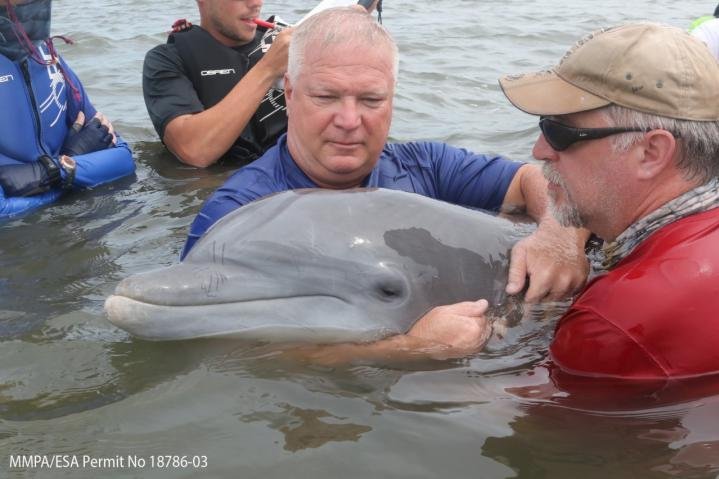Deepwater Horizon spill has long-term effects on dolphins' immune systems

Scientists have been regularly capturing, sampling and releasing bottlenose dolphins exposed to the Deepwater Oil spill in 2010, and report that the immunological effects on the mammals can still be seen -- even in younger dolphins. Photo by Todd Speakman
Feb. 18 (UPI) -- Ten years after the Deepwater Horizon rig exploded in the Gulf of Mexico, triggering the largest marine oil spill in history, dolphins are still experiencing the immunological effects of exposure, according to a study published Thursday in the journal Environmental Toxicology and Chemistry.
The new research is only the latest study to show the effects of the Deepwater Horizon spill were larger and longer-lasting than previously estimated -- capable of disrupting entire food webs and even affecting animals on land.
Over the last decade, researchers have been regularly capturing, sampling and releasing bottlenose dolphins in Barataria Bay, Louisiana, where oil exposure was extensive.
Researchers compared levels of cytokines -- immunological proteins -- in dolphins from Barataria Bay with the immune system profiles of dolphins in Sarasota Bay, which remained oil-free.
RELATED Survey shows pollution in Gulf 10 years after Deepwater Horizon spill
In the new study, researchers even found evidence that dolphins born after the oil spill host cytokine communities similar to their parents.
Scientists were able to replicate the immunological effects of oil exposure in the lab using mice models.
They were also able to show oil exposure influenced the immune systems of the next generation of mice, even though the newborn mice were unexposed.
RELATED On This Day: Deepwater Horizon oil rig explodes
"The parallel between findings in dolphins exposed following the Deepwater Horizon spill and laboratory mice experimentally exposed to oil was impressive and really helped build the weight of evidence between oil exposure and specific effects on the immune system," corresponding author Sylvain De Guise said in a news release.
"However, the long-term effects and potential for multigenerational effects raise significant concerns for the recovery of dolphin populations following the spill," said De Guise, a postdoctoral researcher at the University of Connecticut.
No comments:
Post a Comment